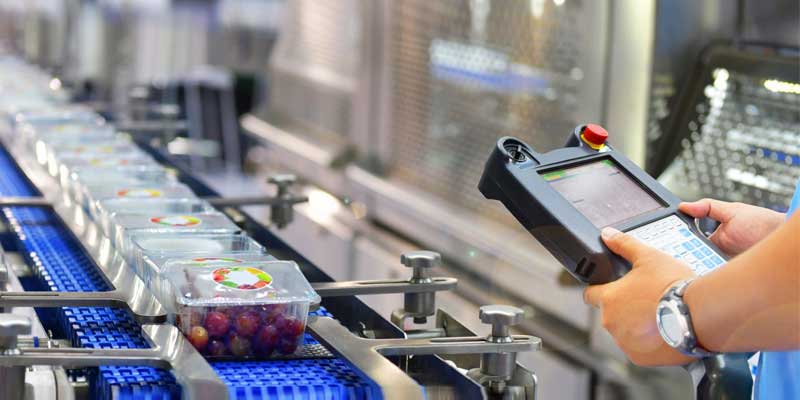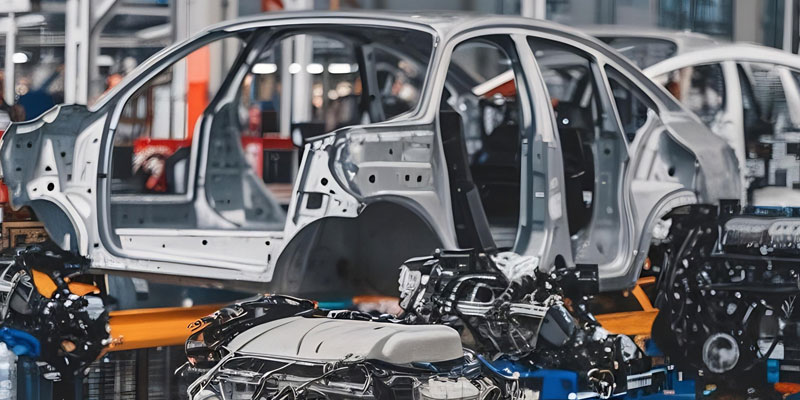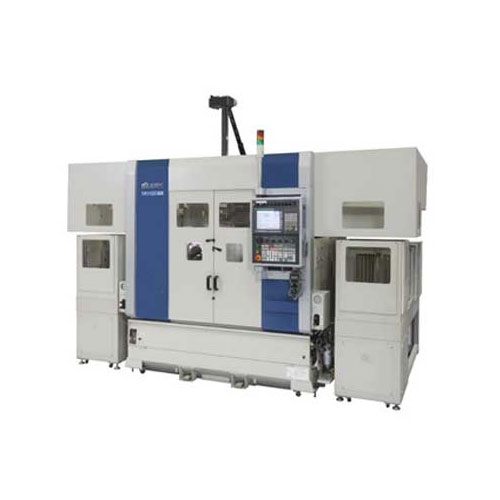Schedule a Call Back
Baby steps to automation for SMEs
 Industry News
Industry News- Apr 30,22

Businesses world over are going through a lot of uncertainties ever since Covid 19 pandemic struck the world in 2020. This was followed by supply chain disruptions with demand far exceeding the supply with manufacturers struggling to meet the booming demand. Challenges such as human resource shortage, skill gap, rising raw material & logistics costs, etc have added to the woes. Companies were forced to recalibrate their internal and external processes to meet the evolving market scenario with digitalisation becoming the backbone of these changes.
Realising the perils of depending on one country for their sourcing requirements, big global corporations have put in place China Plus One policy to diversify their supply chain. This offers good opportunity for the Indian manufacturing sector to increase its share in the global market. To take advantage of this situation, Indian companies will have to adopt modern manufacturing processes and technologies to improve productivity and be competitive globally.
Speaking about utility of automation in this VUCA (volatile, uncertain, complex, and ambiguous) like environment, Sameer Mathur, Chief Operating Officer of Schaeffler India, said, "Forecasting in this volatility and ambiguity is the biggest challenge. Customers change requirements in the month for the month and the swings can be dramatic. To be successful in such challenging environment, organisation must be agile, efficient, and resilient at the same time. Adapting to the change in this VUCA environment is a necessity. It is for organisation to internally to look for solutions rather expecting the customer behaviours to change. Automation possibly is the only solution to steer business in such situations. May it be automation of processes to steer planning and inventory management, may it be automation in the manufacturing arena to utilise the resources with efficiency and agility bringing consistency in processes with benefits of quality, cost, delivery and safety maintaining the morale of the people involved.”
Matthew Fowles, Marketing - Group Marketing Director, LVD Company NV, said, “As one of the largest manufacturing communities in the world, India is very important to us. That being said we see big challenges ahead for Indian manufacturing companies to remain competitive in the world market, falling skill levels in the world place, rising energy costs and requests for small batches of parts on short lead-times are all major factors. Investment in the latest technology including software and machinery that is Industry 4.0 / Smart Factory enabled is vital for India’s manufacturers to remain competitive on a national and international basis. Investment in the latest technology that uses a centralised database and “big data” principles to help manage the process and the flow will make the difference as to whether companies can remain competitive.”
SMEs: The soul of Indian economy
Small and medium enterprises (SMEs) - who contribute majorly to India's manufacturing sector - are in dilemma whether to go for automation (which needs large amount of upfront investment) or wait for business environment to improve and then invest in modernisation. Experts believe this is the right time to invest in digital solutions as they will take some time to pay back rich dividend. SMEs can look at low-cost options to begin their automation journey. "Automation market is growing. More and more players are coming to this market with cost effective solutions. Even an incremental automation is beneficial. It is good step towards Industry 4.0 revolution,” said Dr Umesh Mhatre, Director, Surface Modification Technologies Pvt Ltd (SMT).
Majority of Industry 4.0 projects fail to give desired effect as companies fail to align objectives of automation with their business strategy. Instead of going for complete automation (with huge upfront investment), it is always advisable to first go for the low hanging fruits and then go with higher up fruits, all in alignment with the long-term strategy.
“Complete automation of a manufacturing unit may require big investments. However, it is possible to automate certain areas of the value chain to maximize production and efficiency. With the help of data on time taken by individual processes and the equivalent cost to the company can give clarity on areas to automate. Effective automation varies across companies, based on processes involved and different set standards,” said Sameer Mathur.
Automation can be cost-effective for SMEs, if the whole process is broken up with partially automation done in-house and the rest being outsourced. “Organisations with a hybrid human-digital workforce require flexible, accurate document intelligence solutions that can serve both types of workers. Process automation applications, like RPA (Robotic Process Automation), create a new category of opportunities for efficiency and productivity improvement, ie incremental automation. When we examine any document process, each touch action or review by a worker is lost time, a lapse in productivity and a hit to an organisation’s overall efficiency. If we can methodically find the document/material processing choke points for both physical and digital workers and eliminate them one by one, the sum of those incremental can be massive,” said Rupali Jadhav Menon, CEO, SATRONIX India Pvt Ltd.
Automation can be very helpful, but it is important for manufacturers, especially SMEs, to choose the processes they wish to automate. Many companies have shot themselves in the foot by trying to over-automate their factories and creating inefficiencies. The optimal level of automation requires a balance of human and machine skills. Human skill is underrated, and partial automation like collaborative robots (Cobots) gives the perfect opportunity for employees to utilise their talents to their maximum potential.
Incremental automation can be a great solution as manufacturers can choose to automate a single process instead of an entire solution. By starting with one automated process, SMEs have the option of deploying more advanced solutions for other processes if they are satisfied with the results. This has been proved to be a cost-effective strategy in many cases. For example, New Engineering Works in Jamshedpur started their automation journey by deploying one Cobot for machine tending operations, and installed 6 more over the next year after gauging the value that Cobots brought to the table.
There are other simple, cost-effective ways to adopt automation. One can opt for need-based Internet of Things (IoT) solutions that can be integrated successfully into existing structure, for example, for improving overall plant effectiveness (OEE) or generating automated reports on energy consumption.
As the manufacturing sector adopts Industry 4.0 (or smart manufacturing processes), companies will focus heavily on interconnectivity, automation, machine learning, and real-time data. Industry 4.0 is not a single solution that can fit all, it varies from situation to situation. As Rajesh Nath, Managing Director, VDMA India, says, Industry 4.0 is not a destination, but a journey to achieve excellence. And this journey can be fruitful if SMEs take small (yet firm) steps at a time towards automation.
Related Stories

Rewarding Manufacturing Resilience
Effective January 1, 2026, Mexico imposed import duties ranging from 5 per cent to 50 per cent on a broad set of goods from non-free trade agreement (FTA) countries, including India, China, South Ko..
Read more
EV transition and tariff wars redefine India’s auto components play
India’s auto component industry is poised to hit $ 145 billion by FY30 from $ 80 billion in FY25. Yet high US tariff, EV transition and heavy reliance on imports from China expose vulnerabilities,..
Read more
HANNOVER MESSE to Host Industry Leaders on Future Tech 2025
At HANNOVER MESSE, global leaders from Siemens, Rheinmetall, Accenture and others will share insights on AI, automation, security and industrial transformation shaping the future of industry. update..
Read moreRelated Products

Compact Fmc - Motorum 3048tg With Fs2512
Meiban Engineering Technologies Pvt Ltd offers a wide range of Compact FMC - Motorum 3048TG with FS2512.

Digital Colony Counter
Rising Sun Enterprises supplies digital colony counter.
Robotic Welding SPM
Primo Automation Systems Pvt. Ltd. manufactures, supplies and exports robotic welding SPM.













